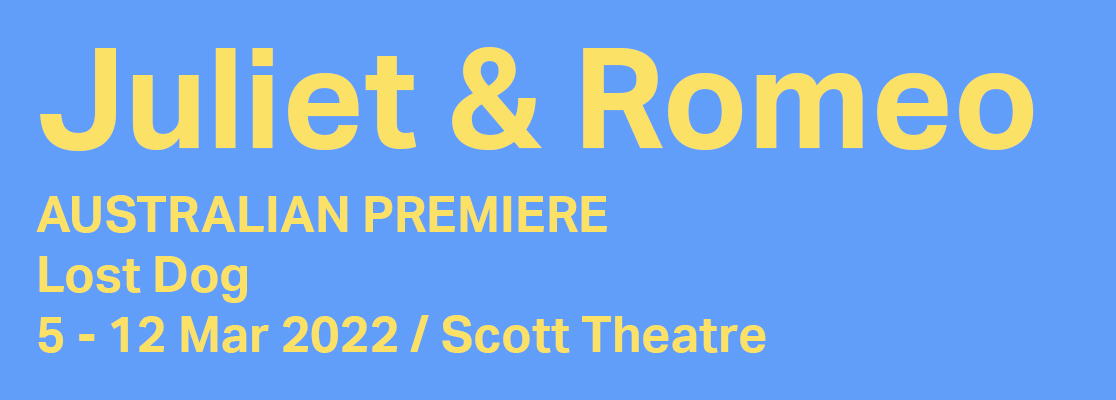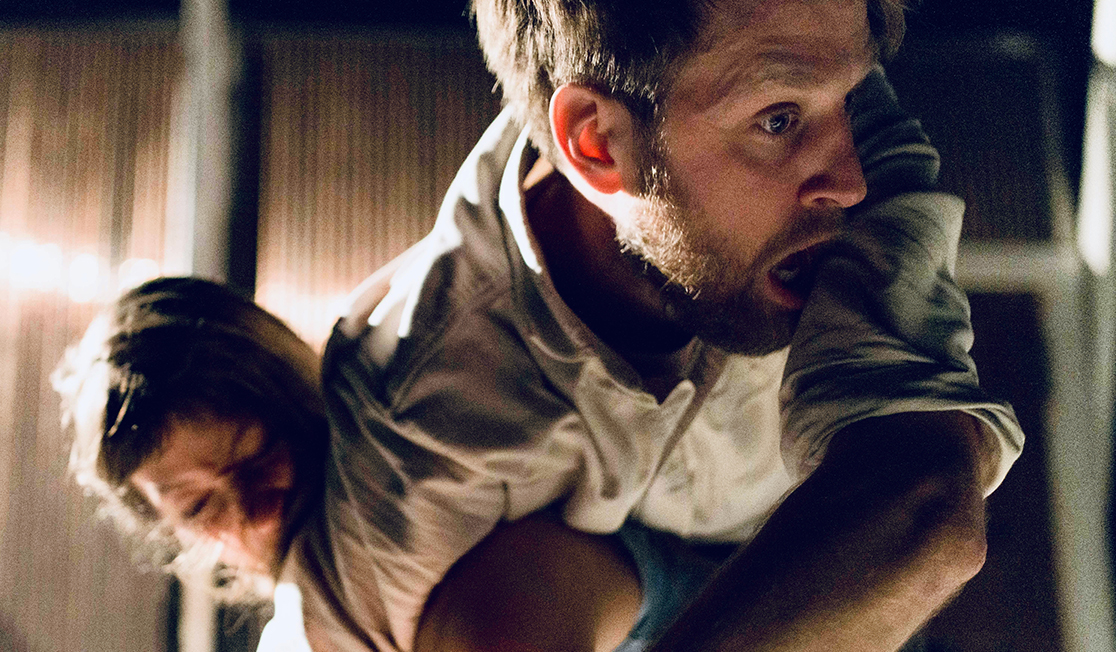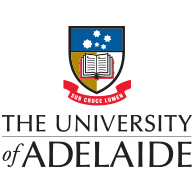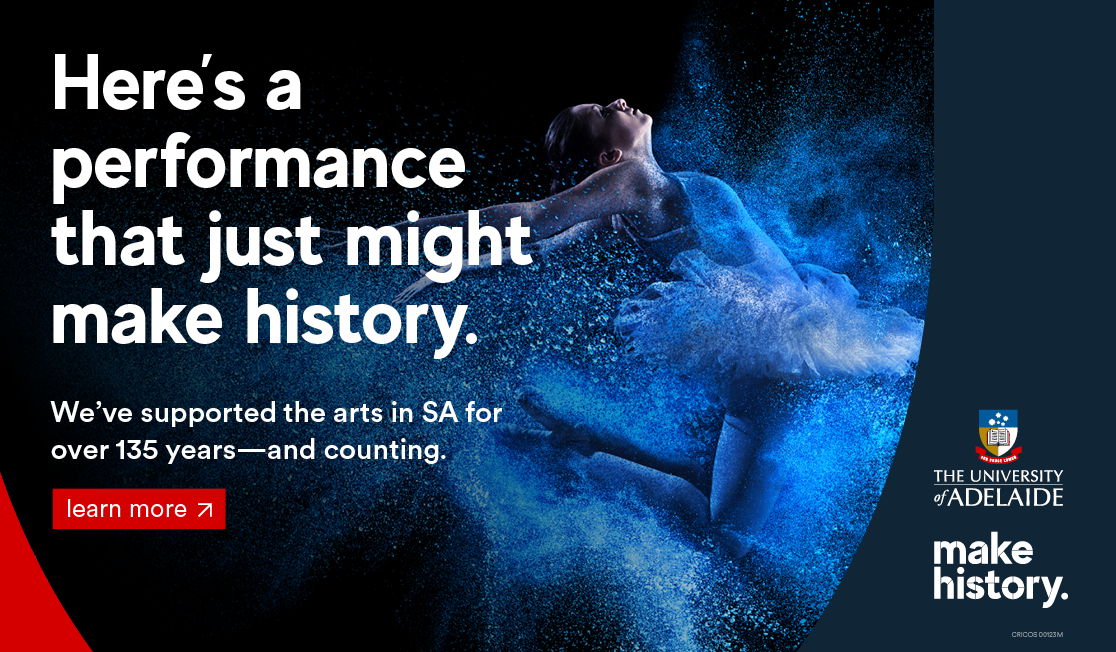Your Daybill
Info
Creative Team
Conceived and directed by Ben Duke
Devised by Ben Duke and Solène Weinachter
Performed by Kip Johnson and Solène Weinachter
Associate Director Raquel Meseguer Zafe
Lighting Designer Jackie Shemesh
Set & Costume Designer James Perkins
Production Manager Dave Sherman
Technical Stage Manager Tanya Stephenson
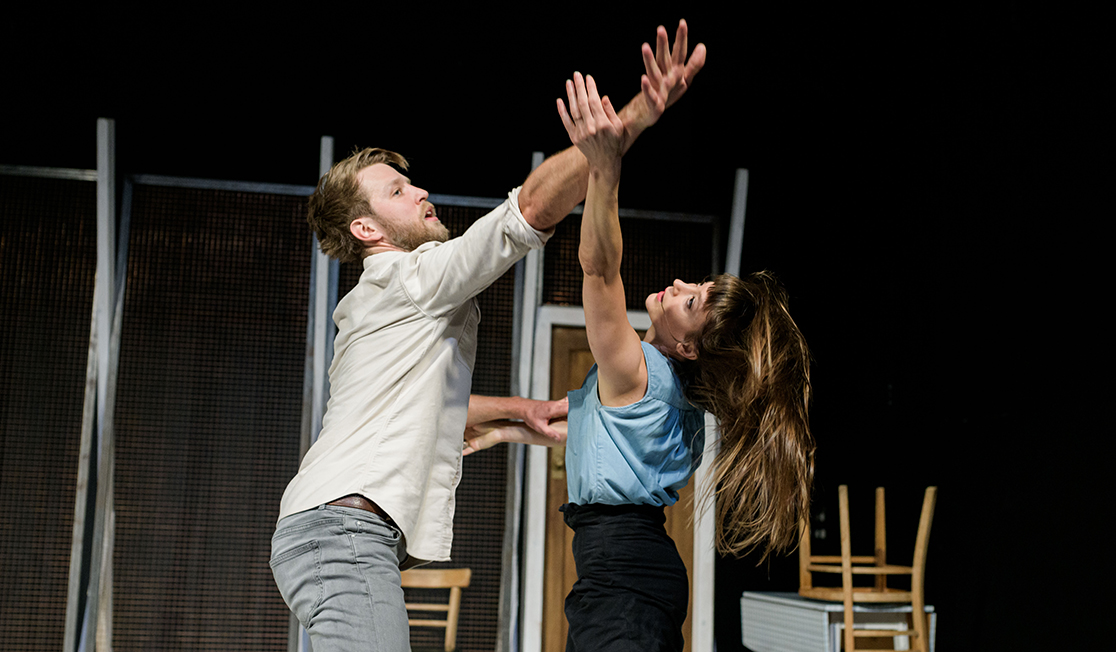
The Making of Juliet & Romeo
By Ben Duke
I first saw Romeo and Juliet when I was a teenager. It was a Royal Shakespeare Company production. I knew as the show began that, in about two hours, they would be dead, so I was reluctant to care about them.
Aged 14, I was starting to understand that it was not advisable to care for too many people. Empathy is not a limitless resource. We have to choose who we invest our emotions in. Invest wisely, I say. This cautious approach is a characteristic I have evidently passed on to my children. My daughter didn’t want a gerbil as a pet because she’d heard on the grapevine that they kept dying. She wanted a tortoise. Here was a creature that had every chance of outliving its six-year-old owner, and so it would be the tortoise, rather than my daughter, who had to deal with the grief.
Romeo and Juliet were the theatrical equivalent of gerbils - their death was predictable and imminent. So, it seemed best - however cute they were - to just withhold my affection for them and sit it out.
But they were good, those RSC actors, and Shakespeare knows what he’s doing, so I was sucked in. I cared; I unwillingly handed over emotional energy. As humans we are, with notable exceptions, predisposed to it.
We don’t want the people we care for to die. I didn’t want Romeo and Juliet to die. In this, my first production, I wanted life – and there were so many opportunities for them to live. If only Romeo had got the message that Juliet sent. If only Juliet had drunk a few milligrams less of sleeping potion and woken up 30 seconds earlier. If only Paris had been better at sword fighting and delayed Romeo’s entrance by a minute or two. If only, if only. As the audience we had to witness just how close they sailed to staying alive, and I found that almost unbearable.
So, this piece came from a long-standing dislike of death and a dawning realisation that in my job I was perfectly placed to re-write the moment that had frustrated me for so long. I wanted Romeo and Juliet to live, and that was our starting point. Initially, it was exhilarating, anything was possible. Where would they go? How would they live? We were overwhelmed with the possibilities.
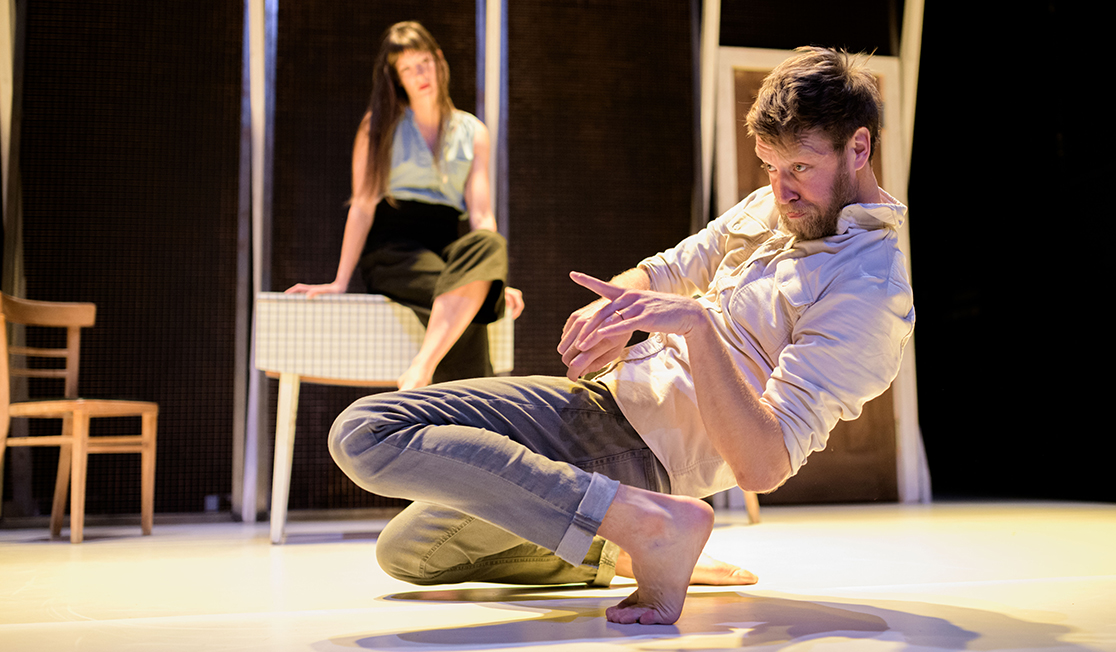
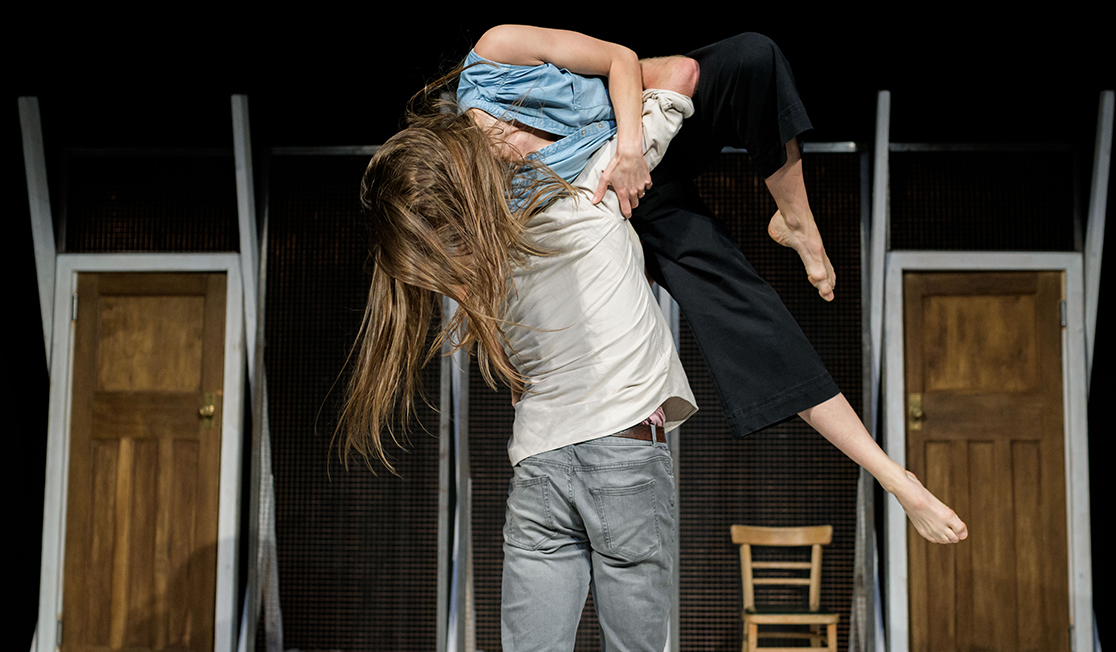
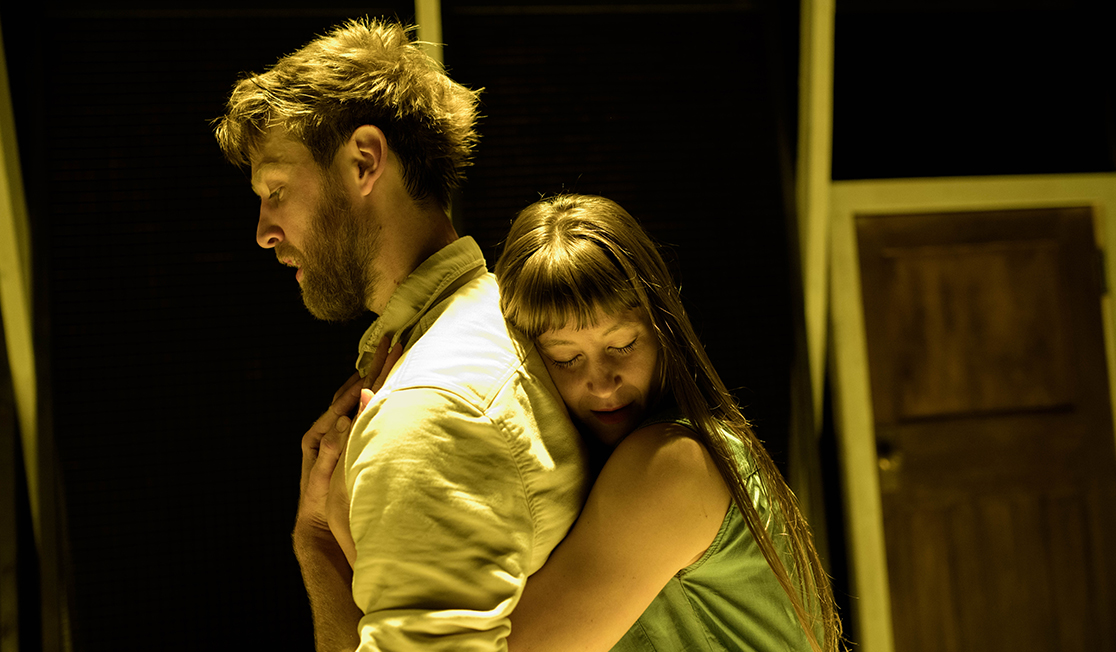
And then, gradually, things got harder. The problem with cheating death is that you have to carry on living. According to the experts, the chemical cocktail that we experience as romantic love only lasts for three years. During those years, there is a gradual fall from the ideal to the real. And Romeo and Juliet had a particularly long way to fall. I was interested in this second part of their relationship – the bit after romantic love that was intrinsically less dramatic, more mundane and more repetitive. If their early passion was fed, in part, by the intransigence of their warring families, then what kind of relationship grows from the daily struggle to get a buggy up five flights of stairs?
The creative process somehow mirrored this fall into the ordinary. We began with a lightness and optimism that allowed us to play with Shakespeare’s story and to find the ridiculous in this supposed tragedy. We spent a great deal of time consuming as many versions of the story as we could find, in particular Macmillan’s and Nureyev’s ballets and Zeffirelli’s and Lurhman’s films, and we allowed these multiple versions to confuse themselves in our brain. Then we got stuck. There was much sitting in silence, watching the changing light outside, and realising that another day had passed with little progress.
I love the uncertainty of the devising process, there is something alchemical about it. But it is frustrating. There is no score to refer to and no script to pick up, just a lot of what can best be described as drifting. It often feels like failing, but without quite knowing against which benchmark I’m failing. I’m constantly reaching for things that ‘work’ and I can only really judge that from a shifting unreliable instinct. There is a great deal that ends up on the cutting room floor. For example, we spent a long time rehearsing a scene in which Romeo and Juliet get drunk with Shakespeare. We felt that this scene was somehow key to our understanding of their present situation, but it turned out to be a red herring. We created duets that had a physical logic but didn’t seem to say anything, so they also had to go. But, to quote Shakespeare in Love, “the natural condition of the theatre business is one of insurmountable obstacles on the road to imminent disaster.” I think, like most people involved in creating work, I am slightly addicted to that feeling of imminent disaster while also holding onto the belief that ‘it will all turn out well.’
You are probably reading this in that dead time before the show begins, so you are not yet in a position to judge if it turns out well. And I wouldn’t want to lead you on that one. It’s shorter than the original, I’ll say that much for it. I would also say, as a general rule, Lost Dog’s work has been getting better, so if this is your first Lost Dog show, you’ve chosen a good moment to discover our work. And if you don’t like this show, try coming back to us in a couple of years.
So here is Juliet & Romeo told in the technicolour of words and movement – a death-defying, life-affirming, alchemical experiment in turning gerbils into tortoises and re-shaping this iconic story of love and death into something far more ordinary.
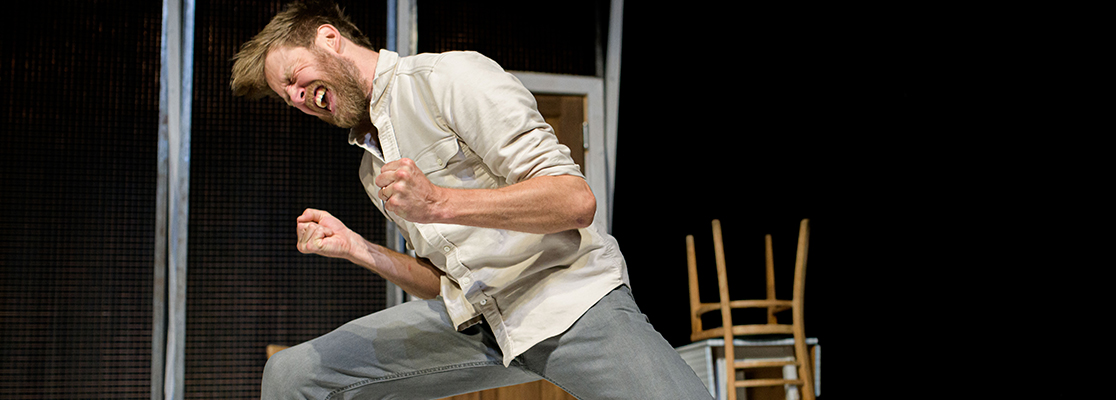
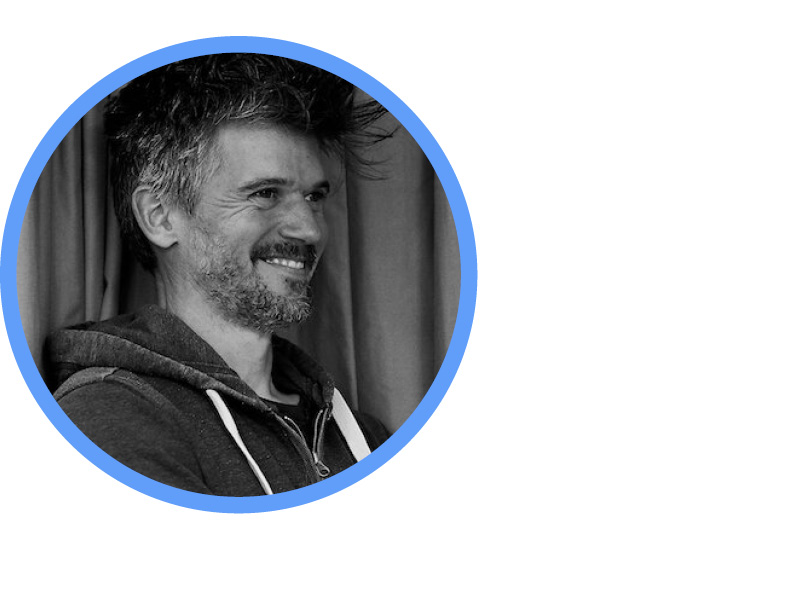
Ben Duke
Director
Ben Duke is Artistic Director and co-founder of Lost Dog. He trained at Guildford School of Acting, the London Contemporary Dance School and has a first class degree in English Literature from Newcastle University. His work is an attempt to reconcile those three subjects.
In 1997 Ben saw Alain Platel’s show Bernadetje at the Newcastle Playhouse and has been trying to re-create the feeling of confusion and joy he had while watching that piece in his own artistic practice. The majority of his artistic output has been within Lost Dog.
Outside of this company, Ben has also worked as a freelance choreographer and performer. Most recently he created The Argonauts in collaboration with Candoco and the British Council and Goat for Rambert, for which he was nominated for an Olivier Award.
He has also created work for Scottish Dance Theatre (The Life and Times of Girl A), Dance Umbrella (The Difference Engine), Phoenix Dance Theatre (Pave up Paradise), the contemporary circus company Barely Methodical Troupe (Kin) and Hi Fliers (There were definitely swans).
In 2018, he collaborated with composer Orlando Gough to create a dance theatre piece for stroke survivors with Rosetta Life (Stroke Odyssey).
He has choreographed for theatre projects by The National Theatre of Scotland (Dolls), the Gate Theatre, London (Sexual Neuroses of our Parents) and Handspring UK (CROW).
As a performer he has worked at the Gate Theatre (I am Falling), The National Theatre of Scotland (Dolls), and with Probe (May) and Punchdrunk (Faust).
Ben is an Affiliate Artist at The Place, and was recipient of the Bonnie Bird New Choreography Award 2011. In 2016 Ben won the National Dance Critics Award for Outstanding Male Performance for Paradise Lost (lies unopened beside me).
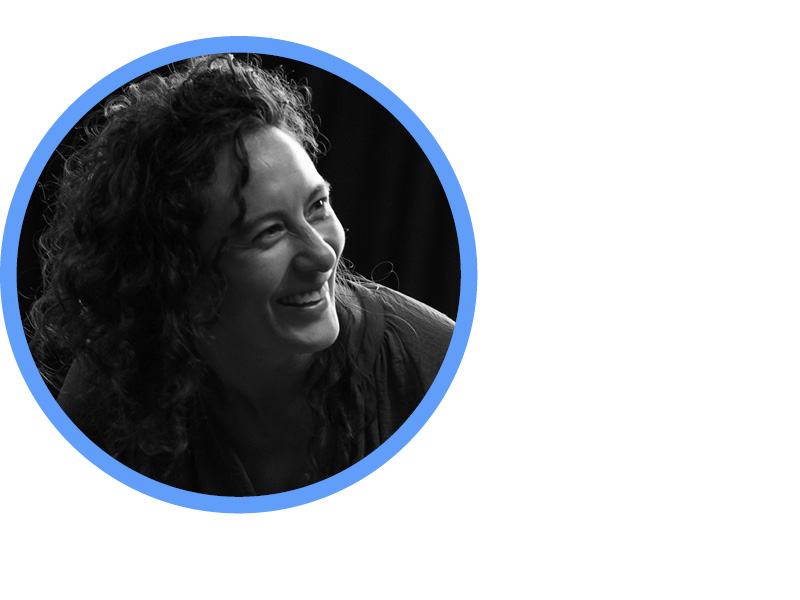
Raquel Meseguer Zafe
Artistic Collaborator
Raquel is co-founder of Lost Dog. Raquel trained at London Contemporary Dance School and performed with Punchdrunk, Tilted Co and Stan Won't Dance. As well as her work with Lost Dog, Raquel has made co-delivered projects for Punchdrunk (The Uncommercial Traveller & The Black Diamond) and has collaborated with theatre maker Amy Hodge (The Rover & 7-75). She is currently directing Someone Should Start Laughing and A Crash Course in Cloudspotting with the Unchartered Collective.

James Perkins
Set & Costume Designer
Theatre includes: The Secret Seven (Storyhouse, Chester); Of Kith and Kin (Sheffield Crucible, Bush Theatre); Sweet Charity; Little Shop of Horrors (Royal Exchange); The March on Russia; German Skerries (Orange Tree Theatre); Jess and Joe Forever (Orange Tree Theatre, Traverse Theatre); Dinosaur World (UK Tour); While We’re Here (Up In Arms, UK Tour); Hysteria (London Classic Theatre, UK Tour); Skylight (Theatr Clwyd); Pilgrims (Hightide, Clwyd Theatr Cmyru, Yard Theatre); The Last Five Years (New Wolsey Theatre); The Gathered Leaves (Park Theatre); Ciphers (Bush Theatre/Out Of Joint); Girl in the Yellow Dress (Salisbury Playhouse); Microcosm (Soho Theatre); The Fantasist’s Waltz (York Theatre Royal); Stockwell (Tricycle Theatre); The Marriage of Figaro (Wilton’s Music Hall); The Hotel Plays (Grange Hotel); Pirates, Pinafore (Buxton Opera House); Matters of Life and Death (Contemporary Dance UK Tour); Iolanthe; The Way Through The Woods (Pleasance Theatre, London); The Faerie Queen (Lilian Baylis, Sadler’s Wells); The Wonder (BAC).

Jackie Shemesh
Lighting Designer
Jackie Shemesh designs lighting for dance, theatre and visual art. He has collaborated with Ben Duke and Lost Dog for more than a decade, designing most of their works.
He has worked with dance organisations such as the Batsheva Ensemble, Rambert, Ballet Boys, Scottish Dance Theatre, Dorky Park (Berlin), National Welsh Dance, Candoco and Protein. Other choreographers include Stephanie Schober, Jamila Johnson-Small, Eva Recacha, Nigel Charnock, Hetain Patel, Arthur Pita, Alexander Whitley and more. Theatre credits: Ramayana (Lyric Hammersmith); The Hound of the Baskervilles (Peepolykus and Neal Street Productions); Vanya and Mary Stuart (Rob Icke for Almeida Theatre); As You Like It, The Return of Ulysses and What we did to Weinstein (Tim Supple); The Penal Colony, Man and Oh My Sweet Land (Young Vic Theatre); Islands and The Beloved (Bush Theatre). Other collaborations include Recital for Cathy and From Canyons to Stars (Hamburg Symphony Orchestra); JRMiP (Hebbel Theatre); What If Women Ruled The Word (MIF initiated by artist Yael Bartana, Berlin); TUTBU (Delete Beach for Phil Collins, Berlin); The Magic Flute (NYC) and Camp Anti Camp! (Cheap Kolektiv Berlin Communist Bigamist).
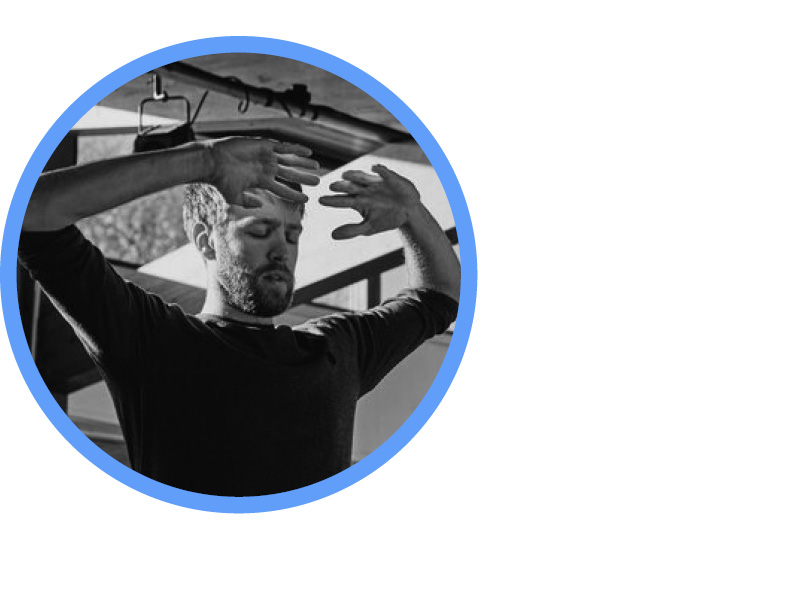
Kip Johnson
Performer
After graduating from Northern School of Contemporary Dance in 2009, Kip has gone onto perform with mainly dance theatre companies such as Protein dance, Vincent dance theatre, Gecko, Ultima Vez and Fevered Sleep. In 2015 Kip travelled the U.K for a year in a Motorhome, volunteering on farms and in communities. Since then, he has been trying to find ways of bringing dance and nature together. He moved to Bristol in 2016 to start making work, interested in the human relationship to nature and the intersection between human and natural processes.
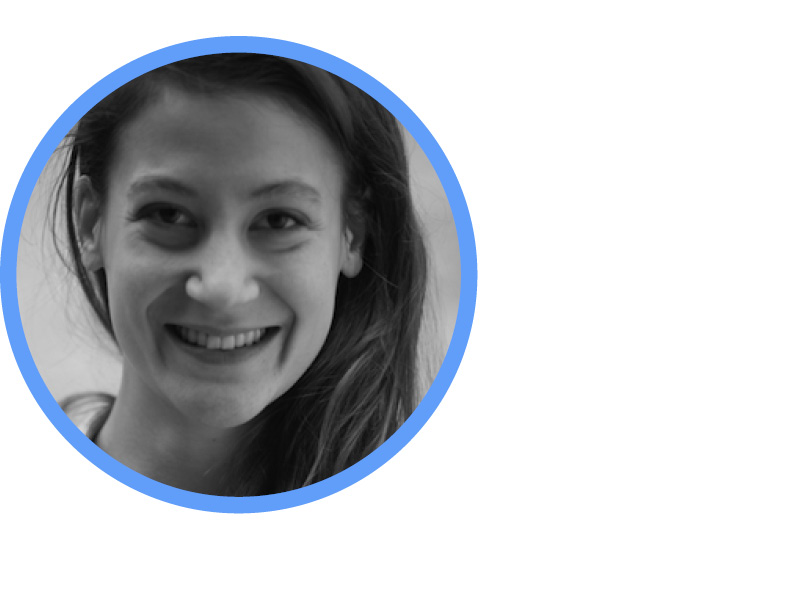
Solène Weinachter
Performer/Deviser
Solène's dance journey started on her kitchen floor and took her to The Place in London where she graduated with a BA(Hons) and an MA in Contemporary Dance and Performance. In 2007 she joined Scottish Dance Theatre where she first worked with Ben Duke in 2010 with the creation of The Life and Times of Girl A. Solène was nominated ‘Outstanding Dancer of the Year 2010’ by Dance Europe magazine for her role in this piece. Solène then joined Lost Dog as a freelancer in 2012 when Ben was creating Home for Broken Turns. In 2014, she stepped into Ben’s place prize winning choreography It needs Horses and came back to the company two years later for the creation of Juliet and Romeo where she worked in close collaboration on the making of the piece. Solène won the 2019 National Dance Award for Outstanding Female Modern Performance in her role as Juliet. Solène's freelance path also includes working with Joan Clevillé Dance Gecko, Vera Tussing and Oona Doherty. Solène is a founding member of Collective Endeavours, a Glasgow-based music and dance collective that performs improvised pieces in non-conventional spaces in the UK and abroad.
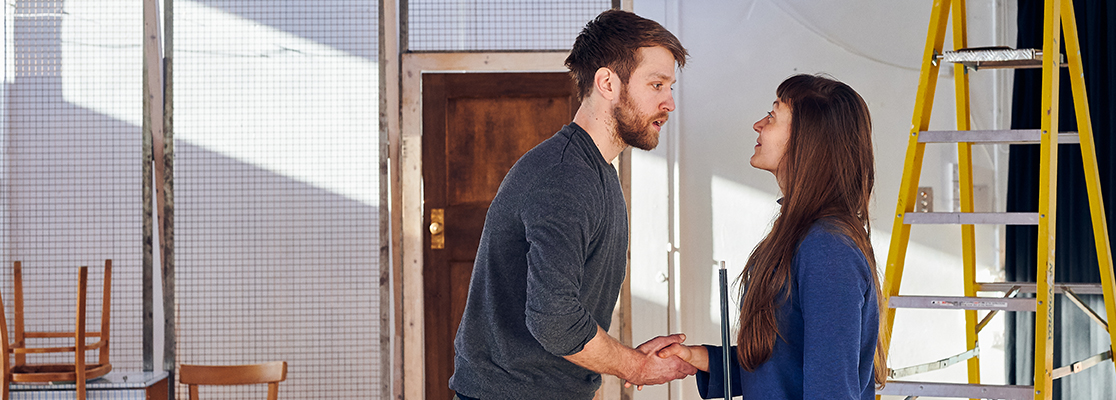
About Lost Dog
“We began with an idea and we continue to wrestle with it, to say what needs to be said and dance the rest.”
Lost Dog was formed in 2004 by Ben Duke and Raquel Meseguer with the aim of creating work that is both theatre and dance. The company work with text, live music and movement and blend these elements to create work in which dance is framed by stories and characters.
Artistic Director Ben Duke
Executive Producer Daisy Drury
Administrator Emma Evans
Artistic Associates Raquel Meseguer Zafe, Jackie Shemesh, Pip Duke






A Sustainable Festival
Adelaide Festival is proudly Carbon Neutral and you can help us reduce our impact on the environment further! Download the Reforest app to track your carbon footprint and plant trees in local reforestation projects to counteract your emissions.

